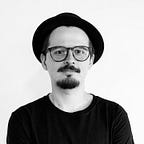Spiritual Animals
What is the minimum amount of human, we need to be humans?
This text, is part of a design process, for the development of my final project as a student at the Copenhagen Institute of Interaction Design (CIID), being this one, the first part of the process.
Most of the references in this document are from a series of videos of the artist and researcher Memo Akten, around the topic of consciousness and machines and I claim no ownership on them.
Manifesto
Neil deGrasse Tyson says “We are all connected, to each other, biologically. To the earth, chemically. To the rest of the universe, atomically” So, it is not only about us connecting to each other as humans, but also as living creatures of this planet, and also as citizens of the universe.
Lisa Feldman Barred says: “Our nervous system evolved to control the body, and our brain evolved to regulate the nervous system”, but is not exclusively individual, because we are also social animals, meaning that we regulate each other’s system, each other’s body. So our connection is not only biological, but also social.
Carl Sagan also says “The cosmos is within us, We are made of star-stuff. We are a way for the universe to know itself”, and for me, this is such a deep a beautiful way to understand how the spark of life has appeared in the universe (probably in way more planets around the universe than just Earth). As a means- in a quite poetic way — for the universe to explore itself, maybe in the same way, individuals seek and express meaning and purpose and the way they experience their connectedness to the moment, to self, to others, to nature, and to the significant or sacred, as Christina Puchalski (Director of the George Washington Institute for Spirituality and Health) defines what spirituality is.
The human body (and in general, any living creature body) can be seen as a biological machine, that performs voluntary and involuntary actions, things that we consciously want to do, with a lot of unconscious things that happen in order to achieve those things, such as breathing, digesting and decomposing food, pumping blood, and so many others, that are not in our control to decide if they should happen or not. We can also modify this machine, replace parts with artificial ones, to better perform or augment ourselves, turning ourselves into cyborgs.
But, what’s the minimum amount of human we need to be humans? What’s the part we can’t replace in the upcoming cyborg era of human kind? I believe that part is the consciousness, but the consciousness is such an intangible part of ourselves, what is it? is the part in control of ourselves?
Memo Akten says “The conscious self is not the driver siting in the drivers seat, but more like a tourist strapped in the back seat of a bus, just going along with the ride. The bus doesn’t even has windows, instead, there’s a tour guide, presenting to you — the conscious self — what it thinks it’s relevant and important”, and this means, that the conscious self is not the only passenger in this biological machine, but just one part, and the way we connect with the other passengers of this body, is through spirituality, performing rituals.
Akten describes a ritual as:
“An algorithm for the body and mind. A sequence of steps and instructions that we follow physically and mentally, to help us transform from our current physical and mental state to desire — but otherwise unattainable — states. It helps us shift perspective, to see, understand, feel and embody new modes of being. In situations where we don’t have direct access to a desired physical or mental state, we resort to ritual”
So, the spiritual rituals we perform are a way to — in the same way the universe does — explore ourselves, are in fact, ways to expand our consciousness, to either, take control of the driving seat, or to be in peace with the other passengers of this biological machine.
Akten also says that perhaps, consciousness is evolution’s solution to dealing with big data, and that might be what make us — humans — so unique among the other living creatures of this planet: this consciousness the way we can be so successful (from an evolutionary perspective) as social animals.
Establishing that, assuming Akten is right, and consciousness is evolution’s solution to deal with big data, and knowing that humans have already develop machines who can — more efficiently — process big data, can we think about machines as an extension of the consciousness? how can we perform spiritual rituals, using machines as extensions of ourselves, to expand and better understand our consciousness, and with it, understand our own humanity?
Question of intent
The controlling idea of my exploratory thesis is that ritual serves as the algorithm of body and mind. I seek to ask question the following questions:
- What’s the role of the human consciousness on dealing with big data?
- Can we think about machines as an extension of the consciousness?
- How can we perform spiritual rituals, using machines as extensions of ourselves, to expand and better understand our consciousness, and with it, understand our own humanity?
In the spirit of discussion, please feel free to add comments in this post, I will love to read your points of view and what this evokes on you.
